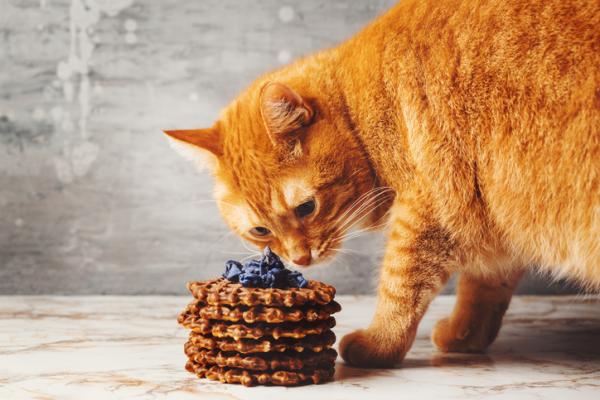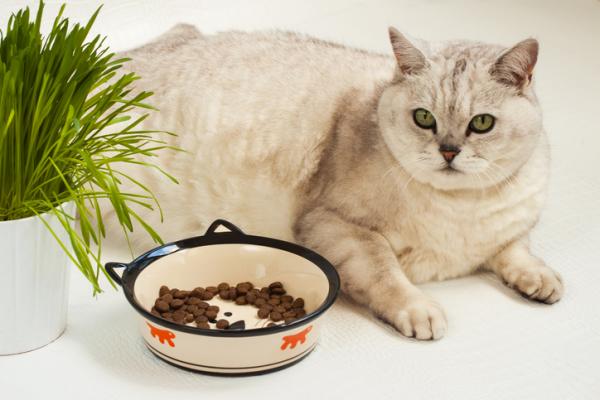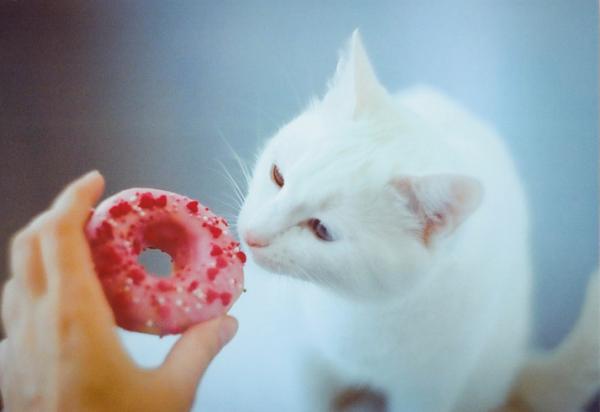Why do cats not perceive the sweet taste?

It’s hard to resist a rich ice cream or a good piece of cake, right? In fact, sweets are a real temptation for many people. But what is delicious to us can be a threat to the health of our pets. Many sweet foods, mainly the industrialized, can cause severe digestive disorders and intoxicate your body.
In addition, some species, such as felines, are unable to taste and often reject the most sugary tastes. In this way, we can say that cats do not feel the sweet taste due to a self-defensive ability developed naturally by their organism during the evolution of their species. To deepen more in the subject, it invites you to understand better why cats do not perceive the sweet taste in this article.
Cats: demanding diners?
We hear very often that cats are owners of a very selective palate. But if a feline in the wild were as capricious with their palate as we imagine a cat is, it would represent a risk to their survival. Their independent nature and their abilities allow them to position themselves as excellent hunters, but their diet also depends on the availability offered by their environment, the time of year, the weather, etc.
So, what is the “bad reputation” of the selective palate of our domestic cats? Well the answer is in the question itself . Most cats develop a more exclusive palate or whimsical behavior at the time of eating due to domestication. This also explains why street cats tend to have a more flexible palate than domestic cats. With these animals, something very similar to wild cats occurs: their survival depends on their adaptive capacities to the context and the environment to which they are exposed.

The palate formation in felines
The cats they form the criteria of your palate during his “childhood”, mainly during his first 6 months of life. If during this time we present a varied diet in flavors, shapes, smell and textures, we favor their adaptation and reduce the possibility of refusing food in adulthood. If on the contrary, we accustom our kitten to always eat the same food, we will create a very demanding eater. When reaching adulthood, it will probably be very difficult to include other aromas and flavors in the diet of an animal that clung to a very strict food routine.
But we must be very careful with the changes that coexistence with humans can cause in the feeding habits of a feline. Cats do not perceive the sweet taste, but if we offer them sugary foods, we can create an undesired adaptation and cause innumerable damages in their digestive tract.
What flavors do cats perceive?
The cats have a much more privileged sense of smell and vision than ours. But when it comes to palate, cats they have a rather less developed sense of taste than humans. While our body has more than 9000 taste bulbs, which allow us to enjoy a huge variety of flavors, cats They have less than 500 taste bulbs. This is the main reason why cats do not perceive the sweet taste and why many foods that seem irresistible to them can be of little interest to them. To follow, we summarize the main flavors that our domestic cats perceive:
- Acids: cats have a large number of acid taste receptors located throughout the extension of their tongue. Therefore, acid pH foods tend to please them more than alkaline or neutral foods.
- Salted: felines also detect very salty ones, since they have enough receptors for this flavor in their language.
- Bitters: cats perceive bitter flavors less intensely than dogs and humans. Thanks to this, they manage to avoid consuming toxic substances, such as strychnine.
The cats are also able to perceive very well the texture, temperature and consistency of their food, hence the canned food is more appetizing than dry feed.

And why do not cats feel the sweet taste?
We detect the sweets, because we have the combination of two proteins in our taste paps. In contrast, cats do not perceive the sweet taste because barely produce one of the two proteins needed to taste it.
Some cats may be interested in certain sweet foods high in fat, such as ice cream, or that are sources of protein, such as yogurt. But they strongly reject synthesized sweeteners, such as saccharin, as well as the foods that contain them. The specialists affirm that this natural rejection to the sweets in the felines consists of a self-defensive capacity. As sugary foods damage your body, causing flatulence, diarrhea and cramps, your palate evolved to avoid the consumption of these substances.
If you see your cat eating some sugary candy, mainly chocolate that is toxic in large quantities for cats, do not hesitate to immediately contact the veterinarian.
If you want to read more articles similar to Why do cats not perceive the sweet taste?, we recommend that you enter in our Curiosities section of the animal world.


